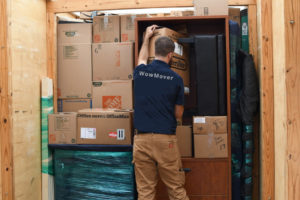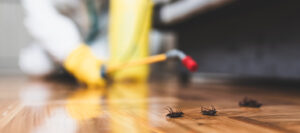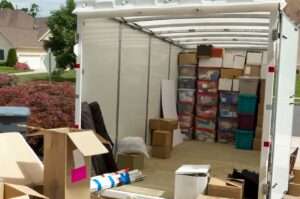
You may be in for a surprise if you utilize your garage to store stuff that you don’t have room for in your home. Moisture, heat, and vermin all wreak havoc on the items that line your garage shelves or are stashed away in their dark recesses. In fact, when placed in the garage, several of those goods may become harmful.
Make sure it’s safe to store another box or unused item in your garage before doing so.
Need assistance storing your items? Call us at (888) 534-2250, We are here to help you!
Never keep the following items in your garage:
Teddy bears can attract pests and become infested, electrical toys can be dangerous if they gather moisture, and crafting tools can melt in excessive temperatures. To be on the safe side, keep your children’s toys inside your home.
Extreme temperatures can quickly harm old devices like computers, laptops, DVD players, game consoles, and televisions, but wetness poses the greatest risk. Electrocution can be caused by any condensation or moisture. Keeping these goods inside or donating them is your choice.
Do you have an extra rug or carpet remnants? They should not be kept in the garage. Mold and mildew can grow on damp clothes, scents can enter the fibers, and bugs can get into the rolled-up lengths. In addition, carpets and rugs that are exposed to direct sunlight will fade over time.
When stored in the garage, don’t anticipate your clothes to fare any better than your rugs. Mold can grow on baby items, winter jackets can develop strange scents, and sweaters can be moth-damaged. Almost every fabric item, even sleeping bags, will succumb to the same fate. Keep them in your house.
In the garage, it’s not just plywood that suffers. Almost every timber is vulnerable to extreme circumstances. As a result, expect some damage to your wood furniture if you store it in your garage. Changes in humidity, for example, will cause the wood to swell and compress, resulting in cracks that you may not be able to repair.
Personal belongings have no place in the garage. Coins can corrode, Toy Cars can rust, and collector editions can mold due to moisture. Vinyl records can distort in the heat, and dirt can ruin autographed posters. It’s much easier to steal these valuables from your garage than from a secure location within your house.
Related
What are the Qualities of a Good Storage Facility
Guide to Renting a Storage Unit for First-Timers
Renting Storage When Moving: Do You Really Need It?
Books, like photos, struggle to survive the humidity and dampness of a garage. Their pages bend and their spines distort as time passes. In addition, silverfish and other insects in your garage will devour the glue that holds books together. Store periodicals and vital paperwork within your home in addition to books and photographs.
Who doesn’t have a garage full of wood scraps? It is typically not a problem for a short-term project. Wood, on the other hand, can warp over time due to changes in temperature and humidity. If you don’t have anywhere else to put your scraps, the garage will suffice. Just keep in mind that by the time you need it, the wood may have warped and become worthless.
Pet food, like human food, should be stored only in your garage. Although the temperature has no effect on pet food in the same way that it does on human food, rats and other pests can readily eat through the bags in which it is often packaged. Keep it in a firmly sealed plastic or metal container if you have to store it in the garage.
Photographs should never be kept in the garage. Heat and moisture can produce mildew on the photographs. The photo’s margins may curl as a result of the garage’s harsh conditions. Locate a safe spot to store them inside, and make sure to scan any originals.
Food of any kind should never be stored in your garage. Rats and other pests are attracted to fresh food, and they can readily break into bags and cardboard boxes. The situation isn’t any better with canned products. Temperature changes can cause bacteria to thrive within cans, and humidity can rust the metal of cans and metal lids on glass jars. As a result, the rust might create a chemical reaction in the food, rendering it unsafe to eat.
Alcoholic beverages such as beer, wine, and other alcoholic beverages should not be kept in the garage. Heat and light can change the taste of wine and even transform it into vinegar. Instead, provide space for them within your home in a dark, cool location.
Because propane tanks might leak, storing them in your garage poses a risk. When a propane tank is leaking, it just takes one spark to start a fire. Propane tanks should be kept in a well-ventilated place away from your home.
In piles of stacked wood, pests such as spiders and termites establish their home. Those pests can readily penetrate your home area if that wood is stored in your garage. Keep firewood at least 20 feet away from your house to avoid an infestation.
So, what can you do if you have a lot of stuff that shouldn’t go in the garage but don’t have enough room in your house to put it? Renting a climate-controlled storage facility is one option. These units are usually found inside a structure that maintains the temperature and provides shelter from the elements. Keeping your belongings in a climate-controlled container assures you that they will arrive in the best possible shape.
Related Articles:





